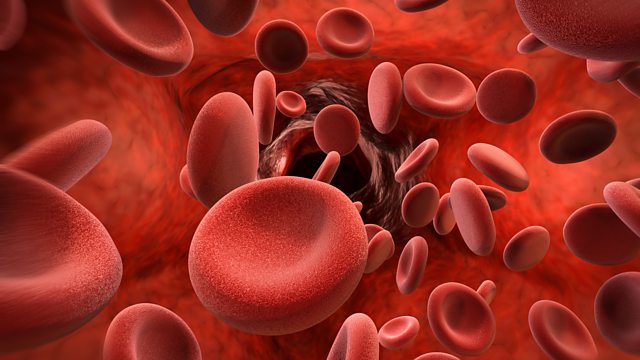What’s the point of blood types?
Humans, like many animals, have blood groups. We can be classified by our cell markers, which help sort our own tissues from nasty invaders. But why do we have different types?
If you put one person’s blood into another person , sometimes it’s fine and sometimes it’s a death sentence.
French physician Jean-Baptiste Denis discovered this when he performed the first blood transfusion back in 1667. He put the blood of a lamb into a 15-year boy. The teenager survived but Denis’s third attempt killed the patient and led to a murder charge.
In 1900, Austrian doctor Karl Landsteiner discovered the reason for this lottery – blood types. The red blood cells in our bodies are decorated with different marker molecules called antigens. These define us as A, B, AB or O blood type. And this is just one of 38 different systems for classifying our blood. CrowdScience listeners have discovered that we aren’t the only animal with blood types and want to know more.
Dogs have 12 different blood groups, so how do they cope when they need a transfusion? CrowdScience meets some very good dogs who donate a pint to the pet blood bank in return for a toy and a treat. Each pint saving up to 4 other dogs’ lives.
We also hear how examining our blood types can tell us more about our links to our ape-like cousins and how the human species spread around the world. And what about the future of blood types – can we use science, and animal blood to get around the problems of transfusions?
Producer and Presenter: Marnie Chesterton
Photo: Red Blood Cells. Credit: Getty Images
Last on
More episodes
Previous
Broadcasts
- Fri 26 Jun 2020 19:32GMTÂ鶹ԼÅÄ World Service except East and Southern Africa & West and Central Africa
- Mon 29 Jun 2020 01:32GMTÂ鶹ԼÅÄ World Service
- Mon 29 Jun 2020 08:32GMTÂ鶹ԼÅÄ World Service
- Mon 29 Jun 2020 12:32GMTÂ鶹ԼÅÄ World Service except East and Southern Africa & West and Central Africa
- Mon 29 Jun 2020 17:32GMTÂ鶹ԼÅÄ World Service East and Southern Africa & West and Central Africa only
Podcast
-
![]()
CrowdScience
Answering your questions about life, Earth and the universe


